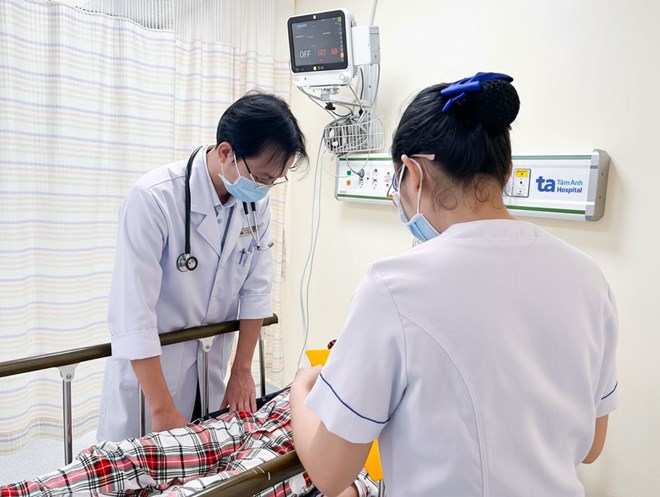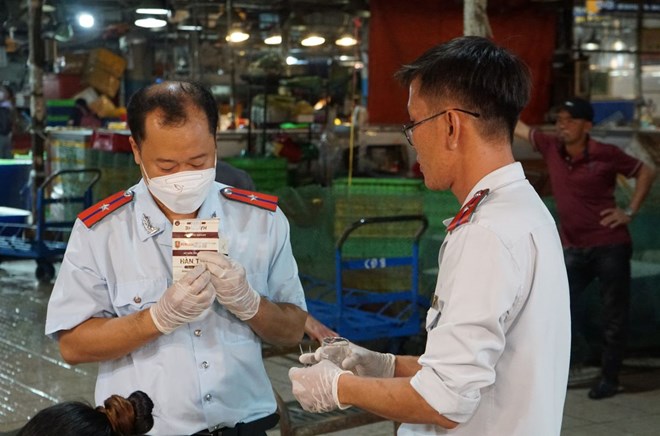H hospitalizations after eating bread in Hanh Thong ward increase
Information from the Ho Chi Minh City Department of Health said that the unit has recorded more than 160 emergency cases after eating bread from 2 stores in the same system on Nguyen Thai Son Street (Hanh Thong Ward) and Le Quang Dinh Street (Binh Loi Trung Ward). This incident continues to be a warning bell about the risk of food poisoning and the importance of food safety and hygiene.
Initially, clinical and paraclinical data of most patients were consistent with the biological agents of intestines, most likely Salmonella. The results of a blood culture at Gia Dinh People's Hospital also tested positive for Salmonella.

The Ho Chi Minh City Department of Food Safety said it had coordinated with the People's Committee of Hanh Thong Ward to establish an inspection team to verify the incident. At the time of inspection, the bread selling facility on Nguyen Thai Son Street had temporarily suspended operations. The team sealed the food, ingredients and took samples for testing according to regulations. The Department of Food Safety has also reported the incident to the Department of Food Safety (Ministry of Health).
Improving food safety management and awareness
Previously, at the end of September, an apartment in Long Binh ward also recorded suspected cases of food poisoning after eating bread purchased at a store in the area.
Ho Chi Minh City is the first locality in the country to establish a Department of Food Safety. After the merger, the city expanded not only in area but also in population, with more than 14 million people. This poses a higher requirement for food management and supervision.

In addition to supervision from the government and the responsibility of businessmen, people need to raise awareness of food safety and take preventive measures: choose foods with clear origin, labels, and origins; do not use unsanitary foods; change habits and unsafe behaviors in processing, preserving, and using food. This is also an important factor in preventing food poisoning and protecting public health.
Regarding the current large-scale inspection and supervision of food safety in the area, a representative of the Ho Chi Minh City Department of Food Safety said that the unit has divided the management area into inspection teams, considered an "extended arm" of the Department. Inspection work is carried out in a variety of ways, including periodically, suddenly and by topic, to ensure food safety throughout the city.
Timely recognize and handle suspected food poisoning
According to Dr. Huynh Van Muoi Mot - Deputy Head of the Emergency Department, Tam Anh General Hospital, Ho Chi Minh City, when symptoms of suspected poisoning such as vomiting, diarrhea, abdominal pain, fever appear, people need to immediately stop suspected foods, and at the same time, rehydrate and electrolyte with oresol or cooked water to cool.
Do not arbitrarily use diarrhea or antibiotics because it can cause toxins to stay in the intestines longer. If you vomit a lot, have continuous diarrhea, have a high fever, have severe abdominal pain or show signs of dehydration, the patient needs to go to a medical facility immediately.
Doctor Muoi Mot warns that food poisoning can cause severe dehydration, electrolyte disorders, sepsis, liver and kidney damage, and even death if not treated early. Self-treatment at home or delaying medical examination is a dangerous mistake, causing many cases to fall into a state of exhaustion and serious complications before reaching the emergency room.











